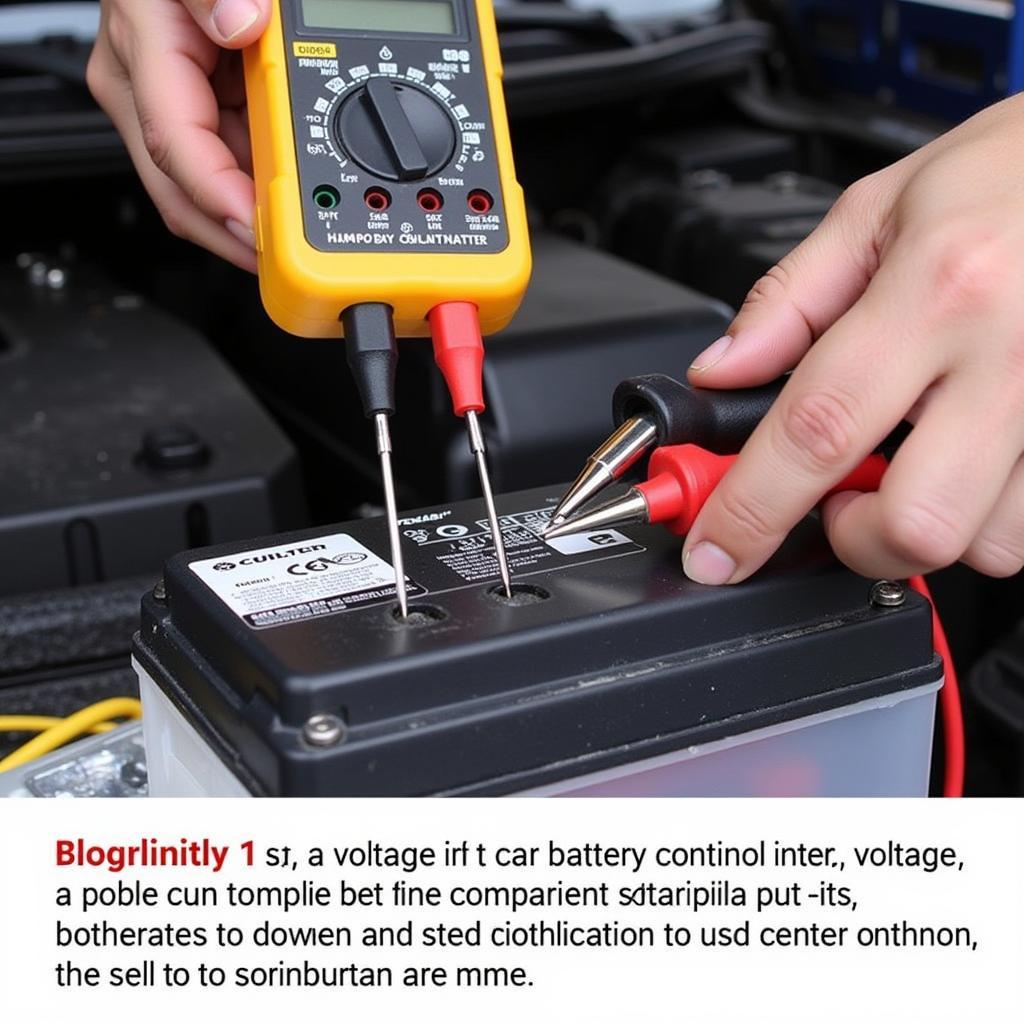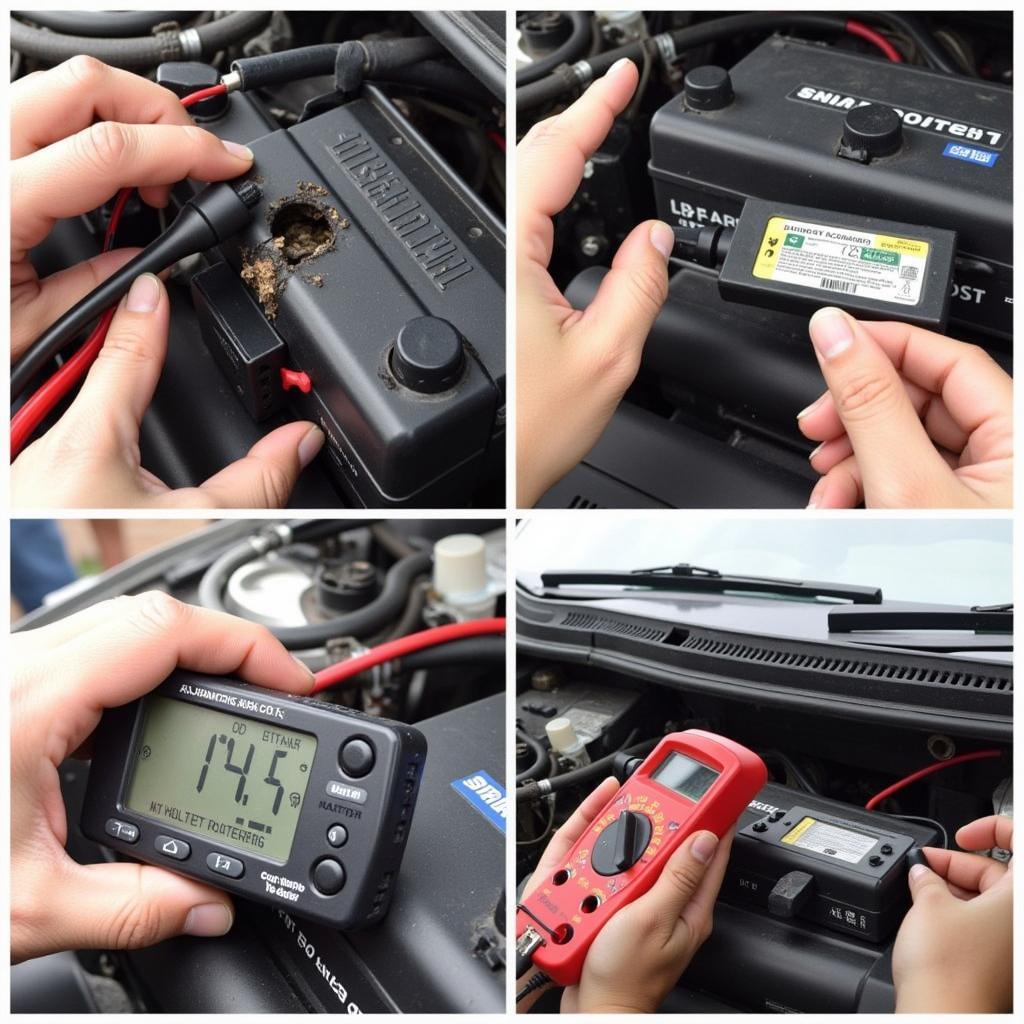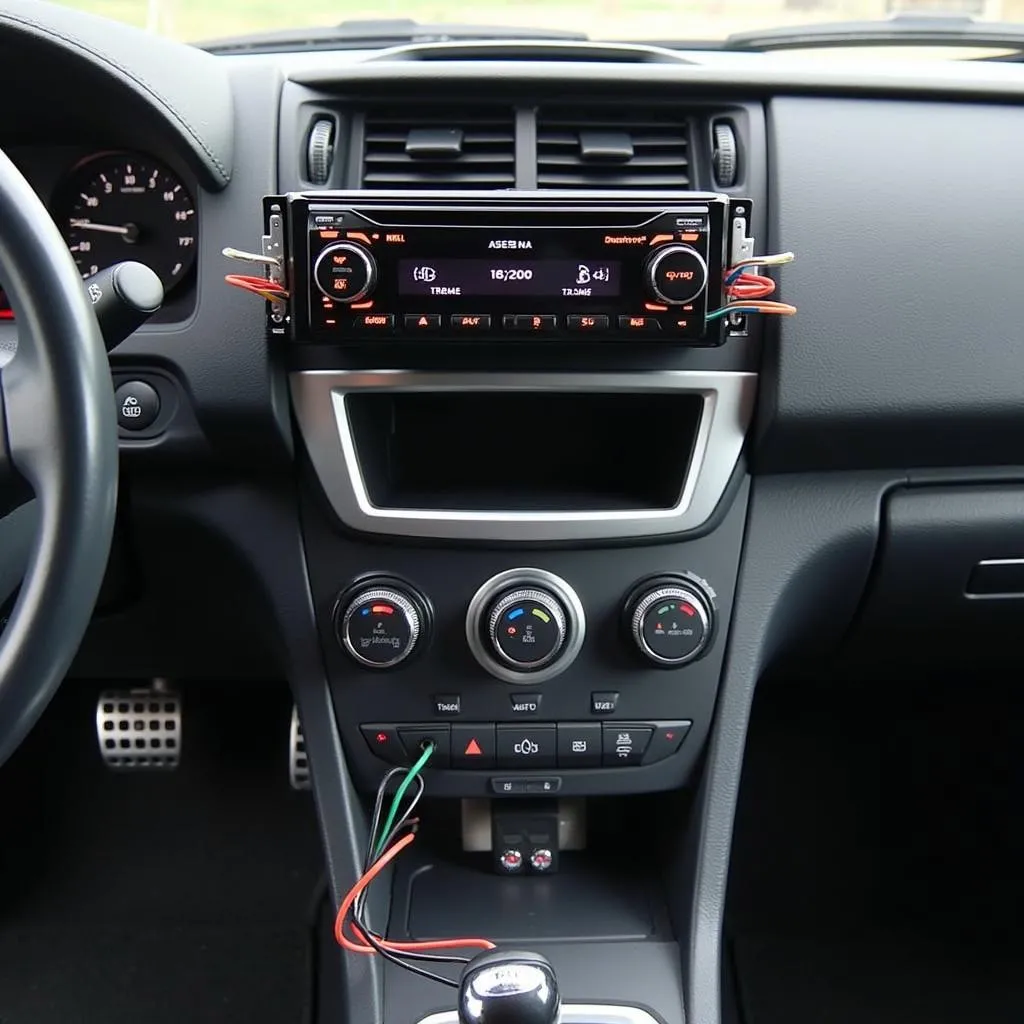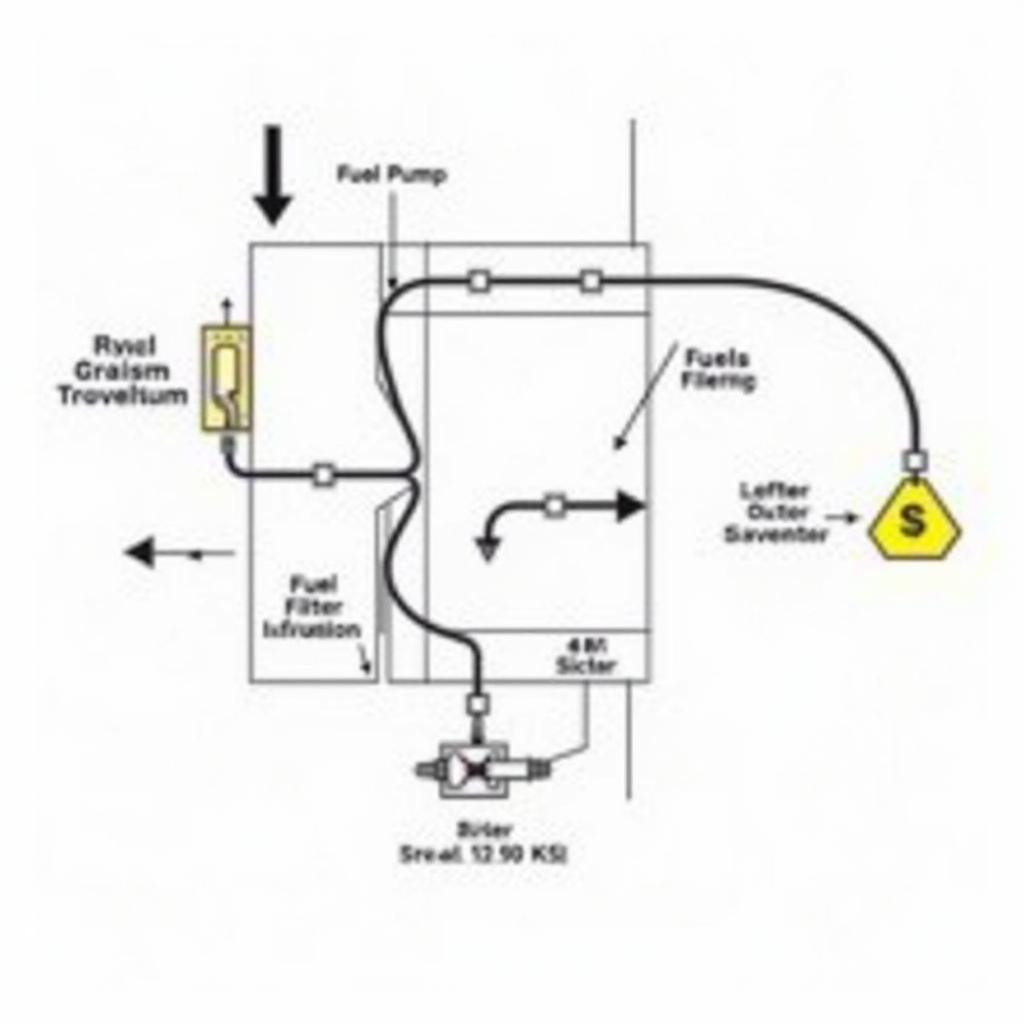A dead battery is a common culprit when your car won’t start, often mimicking a bad starter. This article guides you through diagnosing a dead battery starter problem, offers solutions, and helps you understand the difference between a dead battery and a faulty starter. Let’s get your car back on the road! bad starter vs dead battery
Recognizing a Dead Battery Starter Issue
Several tell-tale signs indicate a dead battery starter situation. The most obvious is the complete silence or a faint clicking sound when you turn the key. No cranking, no engine roar, just…nothing. Other symptoms can include dim headlights, a slow-working clock, and flickering interior lights. These are all classic signs of a weak or dead battery affecting the starter.
What Causes a Dead Battery?
Several factors can lead to a dead battery. Leaving lights on overnight is a common one. Extreme temperatures, both hot and cold, can also drain battery life. An old battery simply reaches the end of its lifespan and needs replacing. A parasitic drain, where a faulty electrical component draws power even when the car is off, can also silently kill your battery.
Dead Battery or Starter: How to Tell the Difference
Sometimes, a bad starter can mimic a dead battery. Knowing the difference can save you time and money. dead battery or starter If your car makes a single click or rapid clicking sound when you turn the key but doesn’t crank, it could be the starter. A grinding noise when starting also points towards a starter problem.
Testing Your Battery
There are several ways to test your battery. You can use a multimeter to check the voltage. A reading below 12.6 volts usually indicates a weak battery. Many auto parts stores offer free battery testing. You can also try jump-starting your car. If the car starts, it confirms a dead battery issue.
 Testing a car battery with a multimeter
Testing a car battery with a multimeter
Solutions for a Dead Battery Starter
If you’ve determined your battery is dead, here are some solutions:
- Jump-Starting: This is a quick fix to get your car running. Make sure you connect the jumper cables correctly, red to positive, black to negative.
- Battery Charging: A slow charge with a battery charger is a better option for reviving a deeply discharged battery.
- Battery Replacement: If your battery is old or repeatedly dies, it’s time for a new one.
signs of dead battery vs starter
Preventing Future Dead Battery Issues
Regularly checking your battery’s health can prevent future dead battery starter problems. Clean corroded terminals with a wire brush and baking soda solution. Be mindful of leaving lights or accessories on. If you park your car for extended periods, consider using a trickle charger to maintain the battery’s charge.
“A simple battery check can save you a lot of hassle,” says John Smith, a certified automotive technician with over 20 years of experience. “It’s a quick and easy preventive measure that can prevent a dead battery situation.”
Is a Dead Battery Harmful to Your Car?
While a single dead battery incident is usually not harmful, is it bad if your car battery dies? Repeatedly letting your battery die can shorten its lifespan and potentially damage other electrical components.
“Modern cars have sophisticated electronics that can be sensitive to voltage fluctuations,” says Maria Garcia, an electrical systems engineer specializing in automotive applications. “Consistent battery maintenance is crucial for the overall health of your vehicle.”
 Car Battery Maintenance Tips
Car Battery Maintenance Tips
What if the Battery is Good but the Car Won’t Start?
If your battery tests good but the car still won’t start, the problem might lie elsewhere. car wont start battery good A bad starter, faulty alternator, or ignition system issues could be the culprit. In this case, it’s best to consult a qualified mechanic for diagnosis and repair.
Conclusion
Dealing with a dead battery starter can be frustrating, but understanding the problem and knowing the solutions can empower you to tackle it effectively. By performing regular maintenance and taking proactive steps, you can keep your car’s battery healthy and avoid being stranded with a dead battery.
FAQ
- How long does a car battery last? Typically, car batteries last between 3 and 5 years.
- Can I jump-start my car with any car? Yes, but it’s recommended to use a car with a similar battery voltage.
- How often should I check my car battery? It’s good practice to check your battery every few months, especially during extreme weather conditions.
- What are signs of a bad alternator? Dim headlights, flickering interior lights, and a whining noise from the engine bay are signs of a failing alternator.
- Can a dead battery damage the starter? While not directly, repeatedly trying to start a car with a dead battery can put stress on the starter motor.
- What is a parasitic drain? A parasitic drain is an electrical component that continues to draw power even when the car is off.
- How can I test for a parasitic drain? You can use a multimeter to measure the current draw when the car is off.


